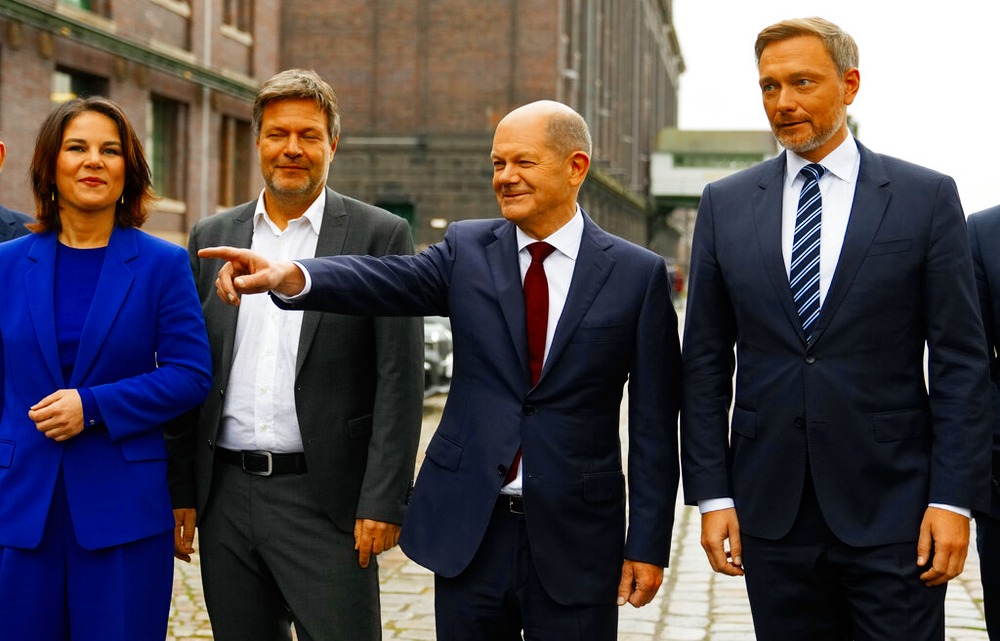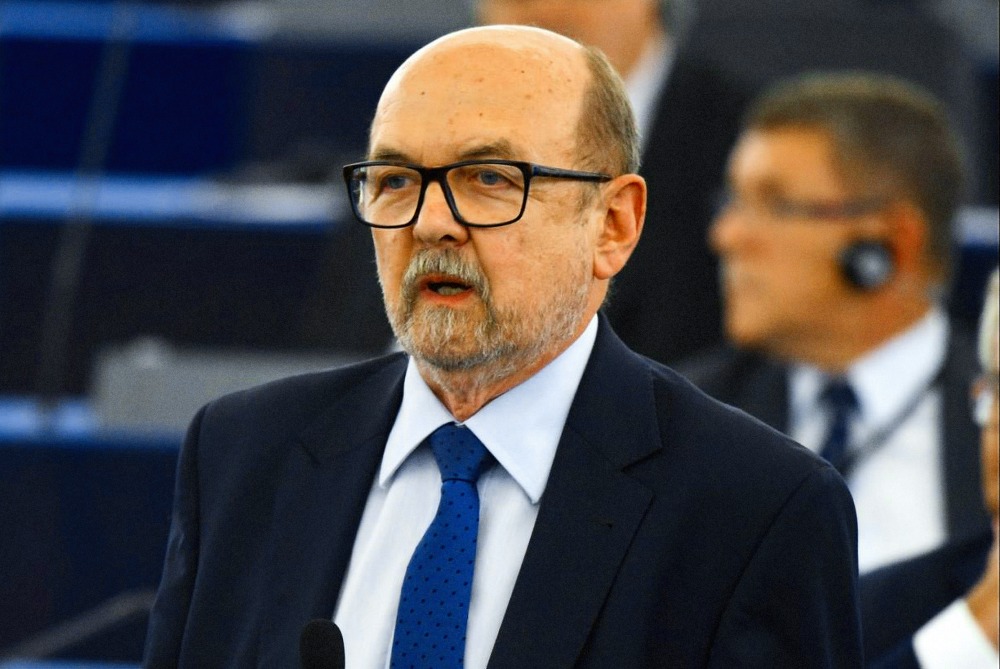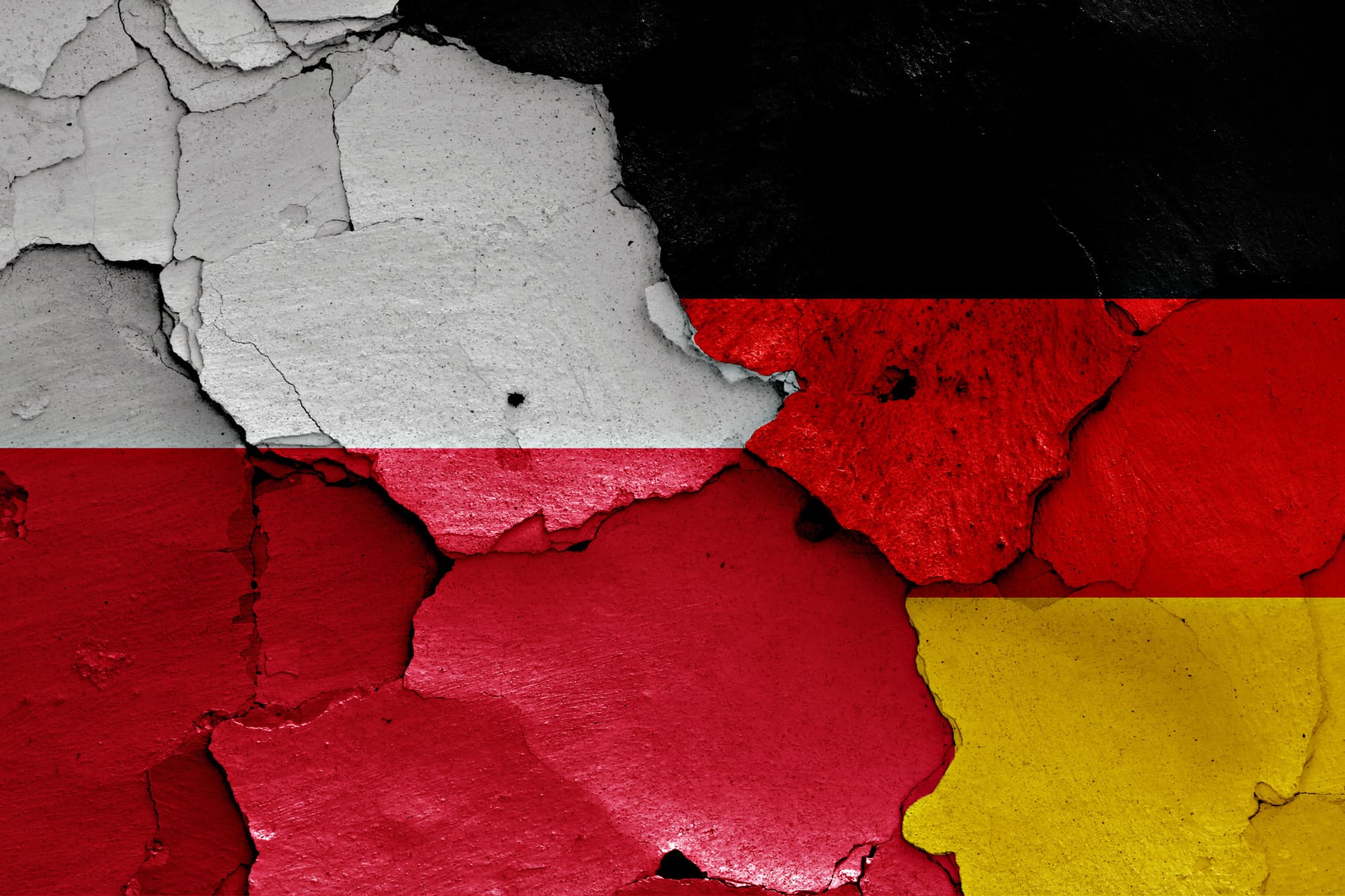The Social Democratic Party of Germany (SPD), the Greens and the Free Democratic Party (FDP) reached an agreement on forming of a coalition government, and in many ways, this coalition is historic. The new deal will see Olaf Scholz replace Angela Merkel as chancellor of Germany, but many commentators believe that the statements made in the coalition agreement are a threat to not only Poland but Europe as a whole.
“There are extraordinary things mentioned in the document, such as the unique role of Germany which is stated to be the strongest and most important country in Europe. Of course, realistically, Germany is the most powerful European country, but proclaiming this in the form of a program declaration means that it has become something in the form of a guiding policy for the new government,” professor Ryszard Legutko said in an interview for Polish Radio.

He pointed out that it was very characteristic of German politicians to want to organize the lives of others, especially of their neighbors. He noted that what was written in the coalition agreement to some extent captured the spirit of the majority of German politicians.
Legutko also spoke about the concept of federalizing Europe which was mentioned in the document and the need to the develop European centralism in the direction of a superstate.

Prof. Ryszard Legutko, MEP, warns that the concept of federalization of Europe forced by a new government coalition in Germany threatens smaller EU states with possible loss and the gradual fading of independence. Source: EP)
“In actuality, this concerns stripping smaller and weaker European states of any sort of authority and giving their authority functions over to EU institutions: the European Commission, the European Court of Justice and the European Parliament,” he warned.
The professor emphasized that European institutions would be legitimized in some way by the German government and perhaps some other Western European countries. This would lead to the formation of an oligarchy in which smaller countries, especially from Eastern Europe, will have no say.
“We are facing the perspective of a possible loss and gradual phasing out of independence,” he declared.
In his opinion, EU institutions have no real power on their own, but Germany uses them and will continue to do so.
“Now, however, a national tone has appeared: that Germany bears responsibility. Germans are truly convinced that they are better, that they have better structures and better laws. Because of this, they want to take care of their neighbors, including Poland. They have said this outright,” he stated.
Legutko stressed that a difficult period was ahead of Poland — both in direct relations with Germany and in relations with EU institutions.
He also underlined that about 30 percent of Poles believed that EU institutions should take over power in Poland.
“It is shocking that so many people, politicians, intellectuals, artists, and ordinary citizens — 30 years after the fall of Communism — want EU institutions to take over in Poland,” he said, adding that the entire Polish opposition supported such a notion.






